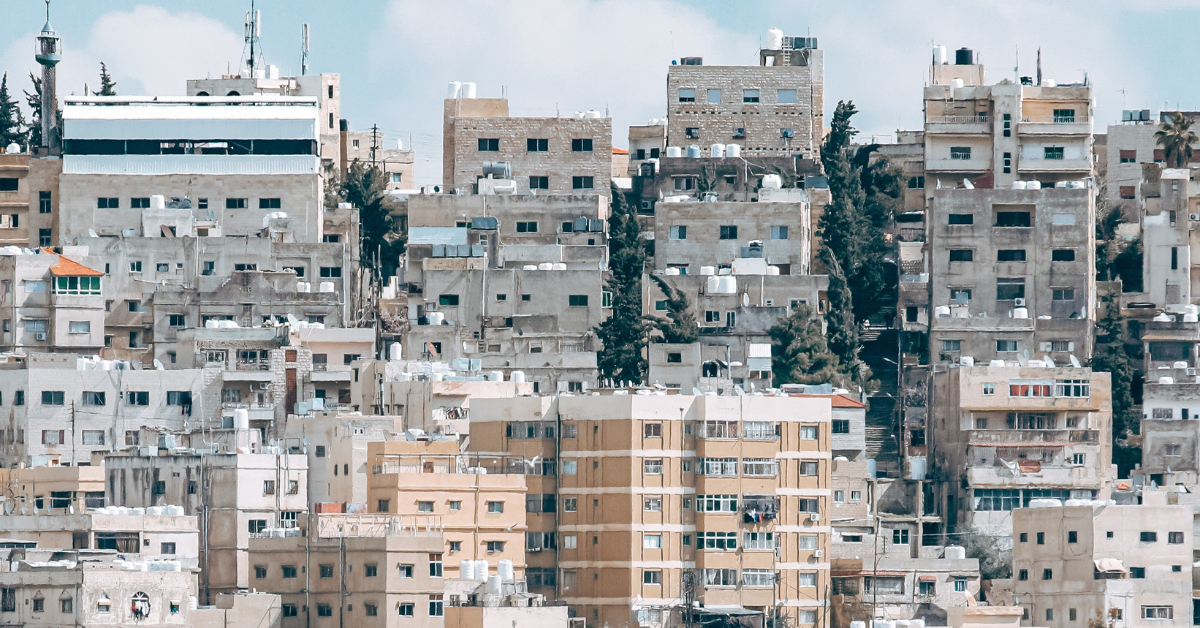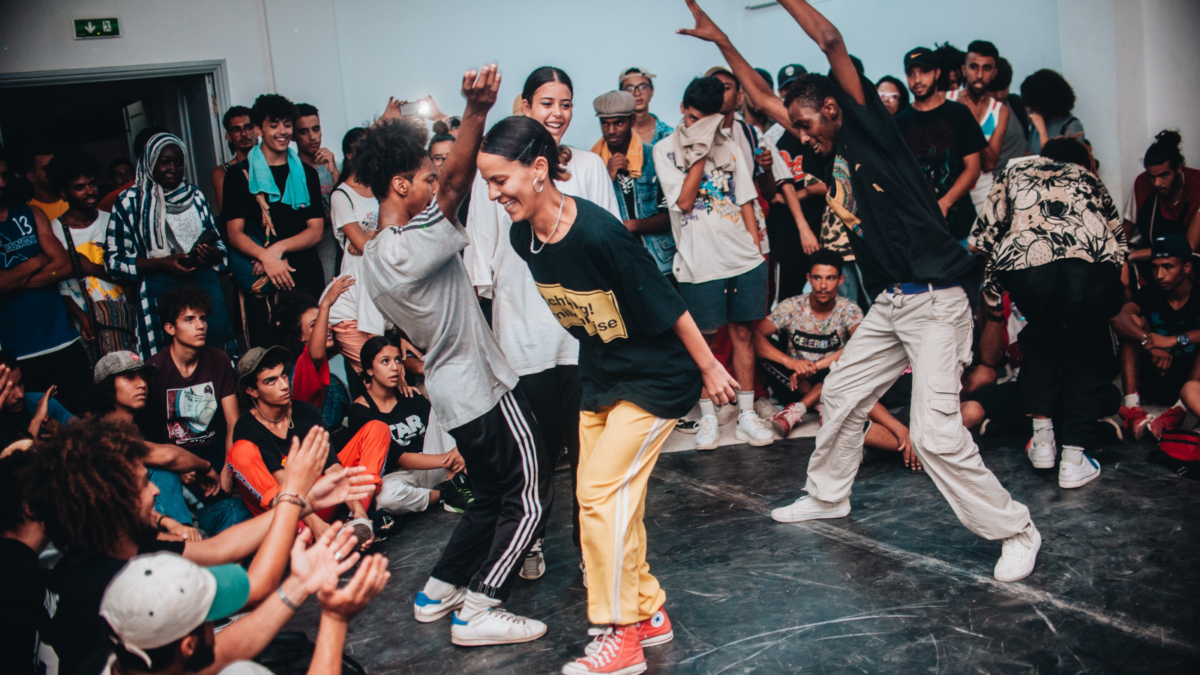In her role as Programme Manager, Sara Habachi of Porticus is responsible for democratic governance, civic engagement, and gender programmes in the MENA region. In this interview we hear more about the Shared Realities Learning Project in Jordan, Lebanon and Tunisia, in addition to perspectives on having a systems approach to the issues of mis- and disinformation.
What exactly is the Shared Realities Learning Project and what was Porticus’ role in the process?
The Shared Realities Learning Project took place in early 2023 in Tunisia, Lebanon, and Jordan. Porticus partnered with Reos and I was involved in various insights sessions to share the outcomes with a wider audience. During this unique process, facilitated by Reos Partners, we undertook the first steps of a systemic process to lay the groundwork for collaborative action towards healthy information ecosystems and enhanced social cohesion.
What are the connections you see between your work at Porticus and the area of mis- and disinformation?
At Porticus we are particularly concerned with understanding different layers of vulnerability and marginalization. What we’re seeing is that mis- and disinformation is not just in one sector that we work in or one geography. We’re seeing it in our work on migration, climate, gender, and on social justice issues. It is all around us. In every single piece of work that we do with civil society, we are asking ourselves, how can we widen the civic spaces out? How can we support the creation of inclusive and participatory practices? And so we find that this is a topic that we can’t disengage from.
As a result of the Shared Realities Learning Project, there were insights and findings recorded in country reports. What were some of the outcomes of these reports, were there any tangible outcomes or next steps?
The reports highlighted areas that could contribute to shifting from a harmful loop to a health loop. While not conclusive, these areas provide at least a starting point to consider entry points for collaboration and dialogue. These areas were: advancing shared identity and history, changing structures that reinforce exclusion, advancing feelings of connection, engagement, and agency, addressing the source of fears, improving the state’s information behaviors, supporting a healthy information supply and improving education. I would ask us to look at these areas as individuals within our organizations, but also collectively.
What’s one thing that stood out to you from reading the reports on Lebanon, Jordan and Tunisia?
What I found so remarkable about these country reports was that so much of what is in there, is our current reality, but that reality is not static. So the individuals, the structures, and the institutions involved in this disinformation industry are moving fast. They’re innovative and they are very, very well resourced. So we have to look forward, we can’t just keep looking at the concerns of today. We really have to get ahead of the curve.
How does the acceleration and amplification of mis- and disinformation affect the work that Porticus is doing, and other funders in the space?
When we’re thinking about our partnerships and our funding approaches, it’s really important to us that we’re looking forward and strategizing effectively. We look at how we can best support our current partners, those that we fund, and the people we collaborate with. We look at the people that we want to take with us on this journey to change and we have to look forward with purpose and vision because this is a vicious cycle that we are hoping to disrupt, for a process that fosters healthy scenarios to use Reos’ language. Once we know and agree upon what that scenario might look like, it’s then on us as a system to shift the dial. And that’s what we’re hoping to learn through this work. So we’re exploring what it means to take a whole system approach.
What’s the value of using a systems approach in this work on mis- and disinformation?
A systems approach is so important because this impacts us all. We have to look at transparency and accountability across the groups that hold obvious power, but we also hold some power in the system as individuals, as parts of communities, as knowledge producers, sharers, and dare I say, influencers. And that’s what we mean by that whole system approach where we shift and move together according to our own skills and, and capacities and funding resources.
As a funder, you have a wider perspective on the different areas people are working in to counter mis-and disinformation. Do you have any advice for people working separately on this issue?
Yes, so during the process we had insight sessions with people that are working on youth participation, people that are gender experts and people that are working on digital rights and access to information, for example. In these sessions I encouraged the participants to look at their work as part of a system, to seek out complementarity and build upon our collective strength. The same applies for anyone reading this now. The question is, where can we bring in those multiple layers of intervention (young people, women, digital access rights, rights for people with disabilities) to address the multiple layers of vulnerabilities? I would encourage those working to target different areas in civil society to speak to one another and find ways to collaborate.
What’s the relevance of this project for you, beyond a funder’s perspective?
I couldn’t ignore disinformation if I wanted to it’s in my personal life, in my private and professional life, it’s everywhere. I look at this not just as as someone that represents a funding institution as part of the philanthropy ecosystem, but also as a consumer, as a democracy advocate, as someone that really believes in freedom of expression and free speech based on the integrity of information and access to information, that that really, really is the thing that is gonna push us to have thriving democracies in civic spaces.
Do you have any final thoughts on this process?
The forces of disinformation are so isolating and convenings like the ones that have happened during this process, and that are happening right now are vital for building bridges and creating shared visions for the future.


